Often wrapped up in a discussion of Total Depravity and Total Inability is a discussion of free will.

Though it is variously stated, most Calvinists believe that humans do not have a free will.
Some argue that humanity did have a free will before Adam and Eve rebelled against God and fell into sin by eating fruit from the Tree of the Knowledge of Good and Evil. Others argue that a form of free will is awakened in the minds of the Christian. What almost all agree on, however, is that no unregenerate person has free will. Of course, even here, you will occasionally run across a Calvinist who claims to believe that unregenerate people have a free will, but that the free will of unregenerate people is only a free will to do evil. That is, though they can choose of their own free will to do what they want, their choices are only between various forms of evil, and they cannot choose to do any good.
Calvinism and Free Will
 Here are some Calvinist quotes about Free will:
Here are some Calvinist quotes about Free will:
Free will is nonsense (Spurgeon, Free Will a Slave, 3).
Free will is the invention of man, instigated by the devil (David Wilmoth, The Baptist Examiner, September 16, 1989, 5).
Free will makes man his own savior and his own god (Tom Ross, Abandoned Truth, 56).
The heresy of free will dethrones God and enthrones man. … The ideas of free grace and free will are diametrically opposed. All who are strict advocates of free will are strangers to the grace of the sovereign God (W. E. Best, Free Grace Versus Free Will, 35, 43).
To affirm that [man] is a free moral agent is to deny that he is totally depraved (Pink, Sovereignty of God, 138).
In matters pertaining to his salvation, the unregenerate man is not at liberty to choose between good and evil, but only to choose between greater and lesser evil, which is not properly free will… As the bird with a broken wing is ‘free’ to fly but not able, so the natural man is free to come to God but not able (Boettner, Reformed Doctrine of Predestination, 62).
Inasmuch as Adam’s offspring are born with sinful natures, they do not have the ability to choose spiritual good over evil. Consequently, man’s will is no longer free (i.e., free from the dominion of sin) as Adam’s will was free before the Fall. Instead, man’s will, as the result of inherited depravity, is in bondage to his sinful nature (Steele & Thomas, Five Points of Calvinism, 19).
What are your thoughts on free will? Does it exist? Does it not? If it does, how can we have free will and God remain sovereign? If free will does not exist, how can we avoid the charge of fatalism or determinism?
If you want to read more about Calvinism, check out other posts in this blog series: Words of Calvinism and the Word of God.



 Yesterday we introduced the
Yesterday we introduced the 
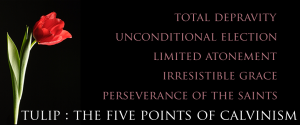 The first point of
The first point of 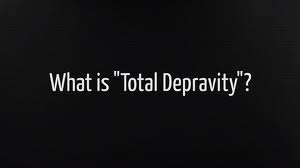
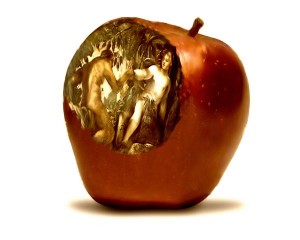 Many people, including many Calvinists, object to the term “Total Depravity” because it gives the impression that human beings are totally and completely sinful. When some people hear about “Total Depravity” they think of someone who always and only does the most evil thing possible.
Many people, including many Calvinists, object to the term “Total Depravity” because it gives the impression that human beings are totally and completely sinful. When some people hear about “Total Depravity” they think of someone who always and only does the most evil thing possible.
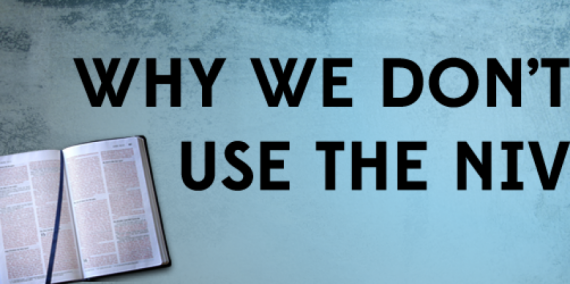
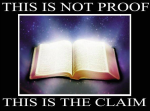
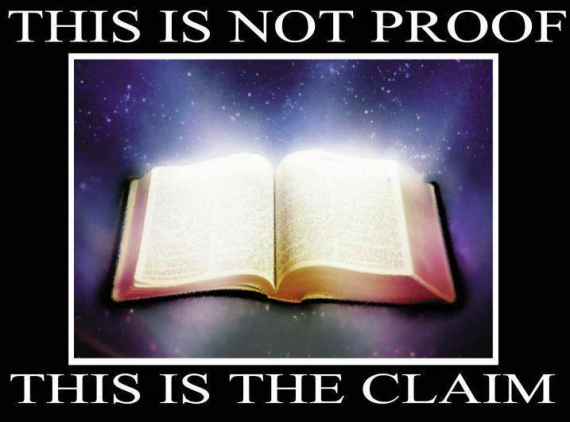
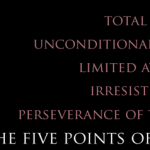
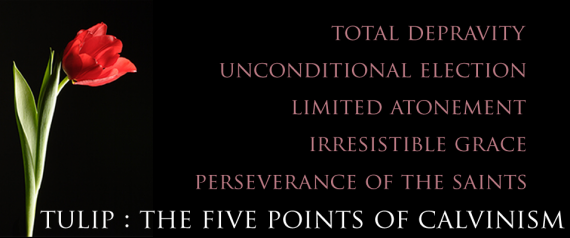

 One way that some people limit grace is when they try to differentiate between “cheap grace” and “costly grace,” or start trying to limit the application of God’s grace by using theological terms like “prevenient grace” or “efficacious grace.”
One way that some people limit grace is when they try to differentiate between “cheap grace” and “costly grace,” or start trying to limit the application of God’s grace by using theological terms like “prevenient grace” or “efficacious grace.”

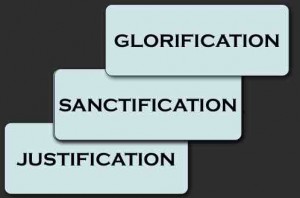 In previous posts we looked at several words that do not refer to eternal life:
In previous posts we looked at several words that do not refer to eternal life: 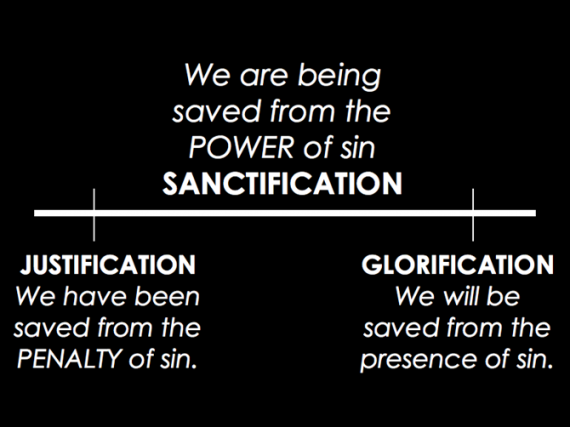


 As this inheritance is almost always associated with obedience or a life of faithful living, people who think that our inheritance is the same thing as eternal life from God will get very confused about how to receive eternal life.
As this inheritance is almost always associated with obedience or a life of faithful living, people who think that our inheritance is the same thing as eternal life from God will get very confused about how to receive eternal life. Most people do not realize it, but the biblical teaching on rewards is one of the most prevalent teachings in the New Testament. The concept is everywhere. And much like inheritance, the biblical teaching on rewards often includes calls for faithfulness, obedience, self-sacrifice, and loving service.
Most people do not realize it, but the biblical teaching on rewards is one of the most prevalent teachings in the New Testament. The concept is everywhere. And much like inheritance, the biblical teaching on rewards often includes calls for faithfulness, obedience, self-sacrifice, and loving service.